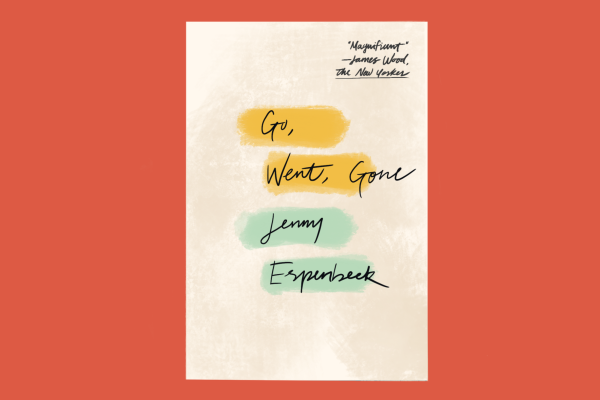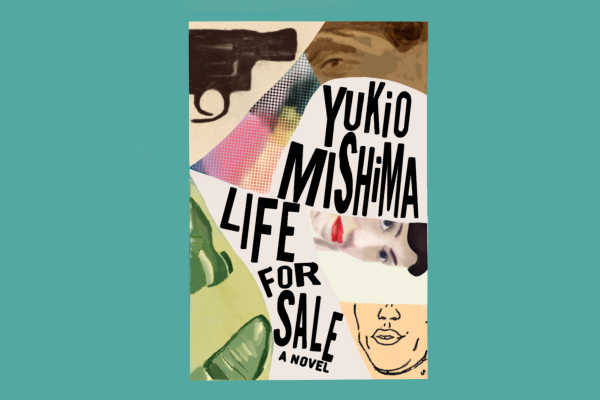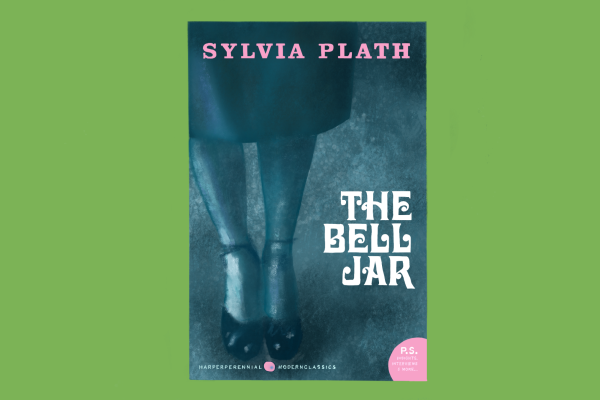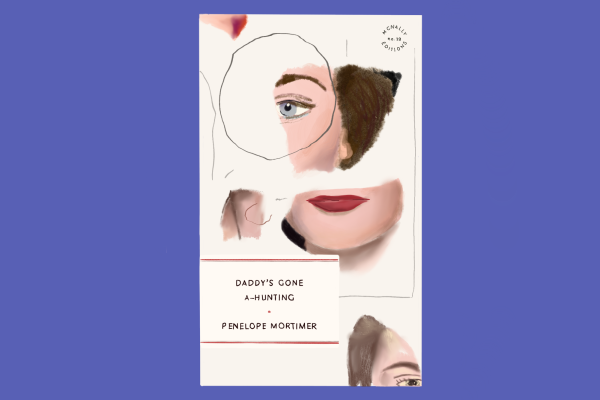Content Warning: mentions suicide
“Go, Went, Gone” by Jenny Erpenbeck

“Go, Went, Gone” by Jenny Erpenbeck follows Richard, a retired classics professor from Berlin. After he leaves his long-held post at a university, the widower must find a way to fill his days. A bit of a wanderer, Richard happens upon a makeshift refugee camp in Alexanderplatz full of asylum seekers hailing from countries across Africa. He becomes interested in the stories of these men, and slowly gets to know them personally. Visiting the camp every day, and then traveling around to see them once the German government disperses the men, Richard’s life becomes intertwined with all whom he meets.
Erpenbeck humanizes individuals who are often forced into a monolith: African asylum seekers in Europe. As Richard learns more about each of the men, Erpenbeck makes astute observations on international law, race and power. The book is beautifully written and emotional while simultaneously grappling with the consequences of a humanitarian crisis.
— Alexa Donovan, Editor-at-Large
“Life for Sale” by Yukio Mishima

Mesmerizingly unusual and comedically satirical, Yukio Mishima’s novel combines mobsters, librarians and spies into less than 200 pages. The protagonist, Hanio Yamada, an advertising copywriter, is unhappy with his mundane life and attempts to commit suicide but fails. So, he puts his life up for sale in a newspaper ad with the hope that someone will put him to a task that leads to his death. However, cycling through client after client, no task is great enough to end his life. He survives a vampire woman who drinks his blood every night, and in another instance, he is enlisted in a drug smuggling scheme as an undercover agent.
While reading, Hanio’s humor made me question how true his storytelling really was, leading me to question his and my own sanity. Mishima puts Hanio in situations that are nonsensical and comment on the ridiculous elements of modern life. Sometimes you have to turn to the extreme to realize the absurdity within the everyday.
— Siobhán Minerva, Arts Editor
“The Bell Jar” by Sylvia Plath

By August, I’d had my fill of rom-coms, the kind where a happy ending is guaranteed once the main character finds love. At summer’s end, I longed for a different story — one not defined by someone else’s affection — and reached for something heavier: Sylvia Plath’s sole novel, “The Bell Jar.” The story follows Esther Greenwood, an ambitious college student who earns a magazine internship in New York City. She struggles with severe mental health issues and the rigid expectations placed on women, gradually losing touch with reality as she’s thrown into a private mental health hospital.
Understanding Plath’s own life is key to grasping the novel’s weight, as Esther’s experiences echo Plath’s battles with anxiety and depression, at a time when women’s mental health was not prioritized. The narration is raw and deeply unsettling as an unflinching reflection of Plath’s inner monologue. “The Bell Jar” remains a sharp critique of mid-century norms, exposing the limited paths available to the women of Plath’s generation.
— Maya Santiago, Fine Arts Editor
“Daddy’s Gone A-Hunting” by Penelope Mortimer

Ruth Whitening is a stay-at-home mother, unhappily conforming to society’s expectations of women. The book opens with her two boys returning to boarding school, her daughter, Angela, gone to university and her husband off on another vague business trip. Once again, her life is defined by an exceptional loneliness. Briskly disrupting the muggy bonds of their close-knit neighborhood, Angela reappears — suddenly and urgently — stripping Ruth’s routine of all structure and mundanity. Despite their strained relationship, the mother and daughter are forced to rely on one another in the face of an unexpected pregnancy, a difficult decision and many useless men.
This poignant exploration of motherhood and sacrifice, sought through the repressive lens of bourgeois life, is a cry for sympathy, not just for Ruth, but mothers everywhere — perhaps even your own. In helping her daughter, Ruth finds contentment in recognizing her own humanity, not as a mother or wife, but as a person who has loved and will continue to love.
— Nghi Nguyen, Deputy Copy Chief
Contact the Arts desk at [email protected].























































































































































